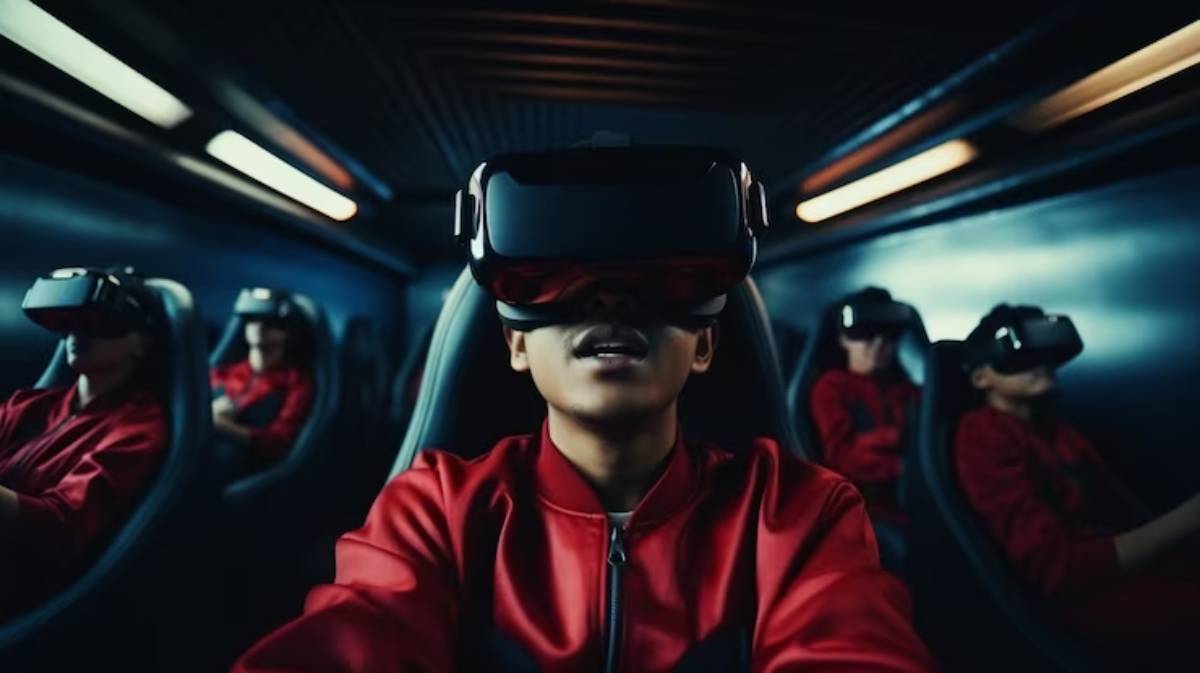
Evolution of Esports Tournaments Over the Decade
Esports tournaments have changed massively over the last ten years. What started as small gaming competitions in internet cafes has grown into a global phenomenon. With packed stadiums, huge prize pools, and millions of fans worldwide, the evolution of gaming competitions is an exciting journey. Whether you are a lifelong fan or simply curious, learning about the history of esports and the major esports milestones will give you a fresh appreciation for this exciting world.
In this article, you will explore the story of esports tournaments, the key moments, the big changes, and the memorable events that have helped shape competitive gaming into what it is today.
The Early Days: A Small Passion Goes Global

Esports started back in the 1970s with the Intergalactic Spacewar Olympics in 1972. But modern esports really took off in the 1990s and early 2000s, thanks to games like StarCraft, Quake, and Counter-Strike.
Local tournaments brought players together in person. The real explosion came with the arrival of streaming platforms like Twitch in 2011. Fans worldwide could now watch events live, helping esports grow rapidly. By 2013, Twitch had surpassed 45 million unique monthly viewers, making it the go-to hub for live gaming content.
The 2010s: A Decade of Huge Growth
League of Legends World Championship
One of the biggest moments in the history of esports came in 2011 with the first League of Legends World Championship. Held in Sweden, it was the start of something big. By 2018, the finals had 99.6 million viewers, similar to major traditional sports events. Each year since, the tournament has only grown larger, featuring ever more elaborate stage designs and entertainment.
The International and Dota 2’s Rise
Valve’s The International tournament began in 2011 with a prize pool of $1.6 million. Later, fans could add to the prize pool through the Compendium, pushing the 2019 prize fund to over $34 million – the largest in esports history. The event became known for its pageantry, cutting-edge graphics, and a global fanbase tuning in to watch teams from Europe, China, North America, and beyond.
More Competitive Games
The esports scene expanded fast with new games like CS:GO, Overwatch, Fortnite, and PUBG. These titles brought in players and fans from many backgrounds, further pushing the evolution of gaming competitions. In 2019, Fortnite’s World Cup saw teenager Kyle “Bugha” Giersdorf take home $3 million, another major moment cementing esports in pop culture.
Esports Fills Stadiums
Esports moved from screens to stadiums. The 2017 Intel Extreme Masters event in Katowice, Poland, attracted 173,000 fans. London’s Wembley Arena and New York’s Madison Square Garden also hosted massive esports tournaments. In South Korea, esports stadiums were built specifically for professional matches, complete with VIP boxes and merchandise stores.
The 2020s: Esports Enters the Mainstream

Esports Thrives During the Pandemic
When traditional sports stopped in 2020, esports kept going. Online tournaments entertained fans and proved the industry’s staying power. Events like the Call of Duty League moved to fully online formats, drawing large numbers of viewers. Publishers even organised charity tournaments that raised millions for global COVID-19 relief efforts.
Esports Gets Recognition
Esports appeared as a demonstration sport at the Asian Games 2018. Universities started offering esports scholarships, making it a part of academic life. In the UK, schools began adding esports to their curriculum, recognising its potential to teach teamwork, communication, and strategy.
Franchise Leagues Arrive
The Overwatch League (OWL) and Call of Duty League (CDL) introduced franchise systems, with city-based teams and formal structures. This brought long-term stability and more investment. Teams are now treated as professional sports franchises, with media rights deals, sponsorship agreements, and dedicated fanbases.
Technology and Viewer Experience
Technology has driven the evolution of gaming competitions. High-speed internet, 4K streaming, and even virtual reality have improved the fan experience. Interactive elements such as live polls, instant replays, and chat integration bring fans closer to the action.
Today, fans can take part in matches by voting on outcomes or earning rewards while watching.
Major Esports Milestones

- Prize Pool Records: The International (2019) holds the record for the biggest prize pool.
- Viewership Records: League of Legends events continue to draw over 100 million viewers.
- Player Professionalism: Players now have contracts, healthcare, personal trainers, and routines like traditional athletes.
- Brand Partnerships: Big names like Nike, Louis Vuitton, and Mercedes-Benz now sponsor esports teams and events.
Cultural Impact and Diversity
Esports is now a cultural movement. It has created global communities united by a love of games. Fans attend meetups, conventions, and even travel internationally to cheer on their favourite teams.
There is also a growing focus on inclusion. Events for underrepresented groups and female players are becoming more common. The push for inclusion is shaping the world of tournament production, opening up careers for many off the main stage.
What’s Next for Esports?
Esports is only going to get bigger. Future events may include virtual reality, AR experiences, and AI coaching tools. Blockchain technologies could also enter the mix, offering decentralised prize pools and fan token systems.
One day, esports could even be part of the Olympic Games – a true milestone in the history of esports. Already, organisations like the International Olympic Committee have begun conversations on how to integrate competitive gaming.
Reflecting on the Journey of Esports
The evolution of gaming competitions in the last decade has been amazing. From small gatherings to packed stadiums with millions watching, esports has come a long way.
Esports is no longer just for gamers. It is a global industry with something for everyone. Whether you want to play, watch, or work behind the scenes, this is an exciting time to get involved.
So, the next time you watch a match or join a live event, take a moment to remember the incredible journey esports has taken. The future promises even more exciting moments to come.
Learning about in-game rewards during esports streams can help you make the most of these features.


